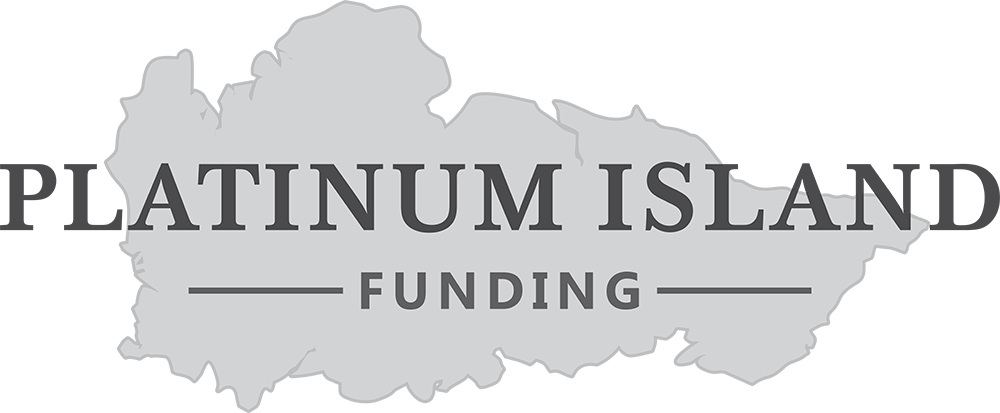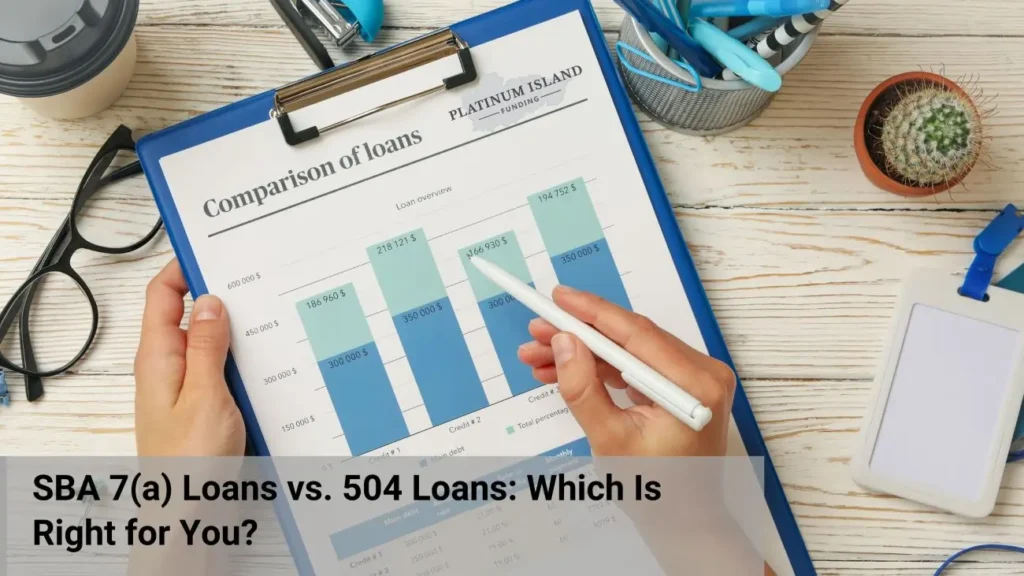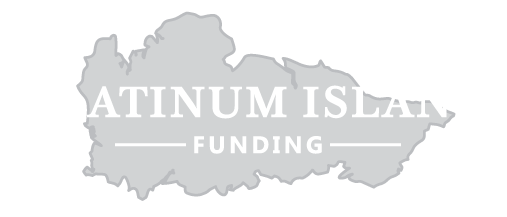When seeking financing to grow or stabilize your business, understanding the different SBA loan types can be critical. Two of the most common options are SBA 7(a) Loans and SBA 504 Loans, both designed to help small businesses access much-needed capital. However, these loan programs differ in terms of their eligibility, loan purpose, and overall structure.
In this detailed comparison of SBA 7(a) vs 504 loans, we’ll break down their features, advantages, and ideal use cases to help you decide which loan is best for your business needs.
What Are SBA Loans?
Before diving into the specifics of SBA 7(a) and 504 loans, it’s important to understand the SBA loan program in general. The Small Business Administration (SBA) provides loan guarantees to lenders, making it easier for small businesses to secure financing. These loans typically offer lower interest rates and longer repayment terms compared to traditional business loans, making them an attractive option for entrepreneurs.
Why Choose an SBA Loan?
- Lower interest rates: SBA loans often come with lower interest rates than conventional loans.
- Flexible terms: Repayment terms can range from 7 to 25 years, depending on the loan type and purpose.
- Easier qualification: SBA loan guarantees help businesses that might not qualify for traditional loans.
SBA 7(a) Loan Overview
The SBA 7(a) loan is one of the most popular and flexible SBA loan types. This loan is suitable for businesses that need working capital, want to refinance existing debt, or require financing for general expenses like purchasing equipment or real estate.
Key Features of SBA 7(a) Loans
- Loan Amount: Up to $5 million
- Use of Funds: Flexible—working capital, equipment purchase, debt refinancing, real estate acquisition, and more.
- Repayment Terms: Up to 25 years for real estate purchases and up to 10 years for equipment or working capital.
- Interest Rates: Fixed or variable, with the maximum rate determined by the SBA guidelines.
- Eligibility: Small businesses with strong credit, sufficient cash flow, and a viable business plan.
When to Choose an SBA 7(a) Loan?
An SBA 7(a) loan is ideal if your business needs flexible financing for various purposes. Whether you’re looking to expand operations, purchase inventory, or streamline debt, this loan is a versatile option.
SBA 504 Loan Overview
The SBA 504 loan is specifically designed for businesses that need to finance major capital expenditures such as real estate or large equipment. This loan is a great choice for businesses looking to expand their physical assets.
Key Features of SBA 504 Loans
- Loan Amount: Up to $5.5 million (or higher for energy-efficient projects)
- Use of Funds: Primarily for purchasing real estate, large machinery, and other fixed assets.
- Repayment Terms: Typically 10 to 25 years for real estate and equipment purchases.
- Interest Rates: Fixed, often lower than SBA 7(a) loans, which makes it a cost-effective choice for long-term investments.
- Eligibility: Requires a down payment (usually 10%), a solid financial history, and a business plan demonstrating the long-term potential of the asset being financed.
When to Choose an SBA 504 Loan?
An SBA 504 loan is the right choice if your business is planning to acquire real estate, purchase large equipment, or make other substantial capital investments. It is perfect for long-term growth and expansion.
SBA 7(a) vs 504 Loan: Key Differences
| Feature | SBA 7(a) Loan | SBA 504 Loan |
| Purpose | Working capital, equipment, real estate, refinancing | Large asset purchases (real estate, equipment) |
| Loan Amount | Up to $5 million | Up to $5.5 million (for real estate) |
| Repayment Terms | Up to 25 years (for real estate) | 10 to 25 years |
| Interest Rates | Fixed or variable | Fixed, typically lower than 7(a) loans |
| Eligibility | Good credit, strong financials, and business plan | Strong financials, asset-driven requirements |
| Down Payment | 10% to 20% | Typically 10% |
Which Loan Is Right for Your Business?
When to Choose an SBA 7(a) Loan
If your business needs flexibility in how the funds are used and you’re seeking financing for various purposes, such as covering working capital, purchasing equipment, or refinancing debt, the SBA 7(a) loan might be the best option for you. This loan is ideal for businesses that require quick access to funds for day-to-day operations and growth.
When to Choose an SBA 504 Loan
If you’re planning to invest in long-term, capital-intensive assets like real estate or large machinery, the SBA 504 loan is the better choice. It is ideal for businesses with clear expansion plans and the financial stability to handle large loans.
Other SBA Loan Types to Consider
While SBA 7(a) and 504 loans are the two most common types, there are other SBA loans that might be worth considering depending on your business’s needs:
SBA Microloan
- Loan Amount: Up to $50,000
- Ideal for: Small, early-stage businesses that need working capital, inventory, or equipment.
SBA Express Loan
- Loan Amount: Up to $350,000
- Ideal for: Businesses needing quick access to capital with a streamlined application process.
Conclusion
Choosing between an SBA 7(a) loan and an SBA 504 loan depends on your business’s unique needs. If you’re looking for flexibility and fast access to funds, the SBA 7(a) may be the best fit. However, if you’re planning for a long-term investment in real estate or heavy equipment, the SBA 504 loan offers more favorable terms for large capital expenditures.At Platinum Island Funding, we help you explore all your financing options, including SBA loans, to ensure your business gets the support it needs to thrive. Reach out today to learn more about your eligibility and begin the application process!
FAQs
What is the main difference between an SBA 7(a) and an SBA 504 loan?
The main difference is that the SBA 7(a) loan is more flexible and can be used for a variety of purposes such as working capital, equipment purchases, and refinancing debt. The SBA 504 loan, on the other hand, is specifically for long-term, capital-intensive assets like real estate and large machinery.
Can I use an SBA 7(a) loan for real estate?
Yes, you can use an SBA 7(a) loan to purchase real estate, but if you’re primarily looking to finance real estate, the SBA 504 loan may offer better terms and lower interest rates.
Which SBA loan is easier to qualify for?
SBA 7(a) loans generally have more lenient qualifications compared to SBA 504 loans, as they are more flexible in terms of the use of funds and offer greater repayment options.
How long does it take to get approved for an SBA loan?
SBA loans typically take a few weeks to a couple of months to get approved, depending on the loan type and the complexity of your application. SBA 7(a) loans are generally faster than SBA 504 loans.
Is there a down payment for SBA loans?
Yes, most SBA loans require a down payment, usually ranging from 10% to 20%, depending on the type of loan and the lender’s requirements.
Ready to find the right SBA loan for your business? Contact Platinum Island Funding today for expert advice and assistance with securing the financing your business needs to grow and succeed.


